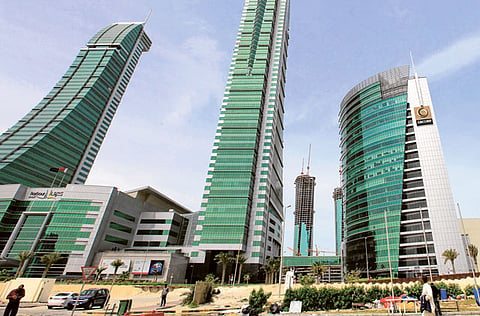Four sentenced to death in Bahrain
Court sentenced them to death for their alleged role in the killing of two policemen

Manama: A Bahraini military court on Thursday sentenced four men to death for their alleged role in the killing of two policemen last month in Manama.
The National Safety Lower Court said that Ali Abdullah Hassan Al Singees, Qassim Hassan Mattar Ahmad, Saeed Abdul Jalil Saeed and Abdul Aziz Abdul Rida Ebrahim Hussain would be executed for their role in the killing of Policemen Kashef Ahmad Mandhoor and Mohammad Farouq Abdul Samad.
The court also sentenced Eisa Abdullah Kadhem Ali, Syed Sadiq Ali Mahdi and Hussain Jaafar Abdul Kareem to life in prison for their role in the killing of the policemen.
However, the verdict is not final despite the emergency laws and the defendants can appeal against it before the National Safety Court of Appeals.
"There were no loud reactions as the sentences were announced," a local journalist present at the session said.
According to the case papers, the men allegedly hit the policemen with large vans and then ran over them in an open area near the Gulf Cooperation Council (GCC) Roundabout, popularly known as the Pearl Roundabout, the epicenter of the protests and the focal point of the demonstrations.
Shaikh Fawaz bin Mohammad Al Khalifa, the head of the Bahrain media authority, on Wednesday said that a Bahrain TV cameraman narrowly escaped the "motorised onslaught" by the protesters in the same area.
On Sunday, the military prosecutor in his closing statement sought the death penalty for the seven defendants, but the defense team said that they should be acquitted.
Executions in Bahrain are very rare. In 1996, Eisa Qambar, 29, was executed by firing squad after he was convicted of killing a police officer during the 1990s unrest. The execution was the first in Bahrain in 20 years.
The sentencing on Thursday is the first since Bahrain declared the State of National Safety, emergency Laws, on March 15 for three months.
Under the laws, security-related cases are overseen by a military court and verdicts can be appealed at the military court of appeals.
According to Shaikh Fawaz, 405 cases (62 crimes and 343 felonies) were transferred to the National Safety Court while 312 detainees were released either for health reasons or after spending time in detention following their participation in the recent incidents.



